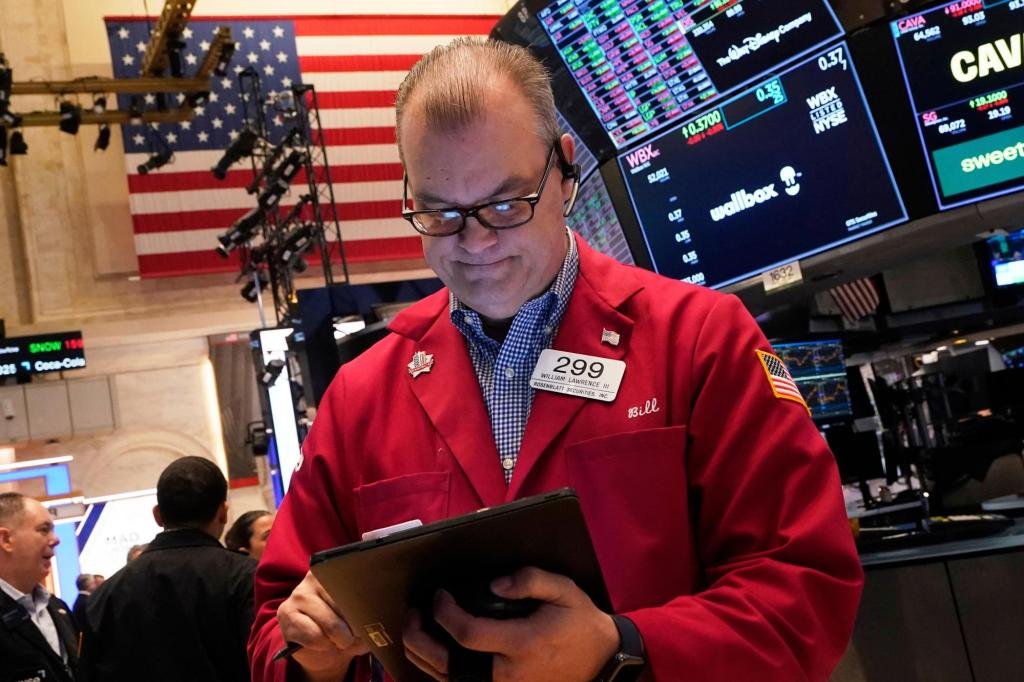Global Markets: A Mixed Reaction Amid Trade War Uncertainty
World financial markets exhibited a mixed performance as companies reported strong profits, contrasting sharply with the ongoing uncertainty instigated by President Donald Trump’s trade policies. The nuances of these developments are crucial for investors and stakeholders alike, highlighting both the potential for growth and the risks that lurk in the backdrop of international trade relations.
Eurozone Growth and Mixed Global Indexes
Recent data indicated a promising growth of 0.4% in the Eurozone during the first quarter, outperforming the previous quarter of 2024. However, this optimistic outlook has been tempered by the implications of elevated tariffs impacting exports from the 20-nation eurozone. The ongoing trade tensions are a contributing factor to the cautious sentiment among investors, as evidenced by fluctuating market performances across various global indexes.
Germany’s DAX experienced minimal gains, up 0.4% to 22,531.16, largely supported by a positive vote approving a coalition agreement among the Social Democrats. This decision positions Friedrich Merz to potentially assume the role of German chancellor. Meanwhile, France’s CAC 40 mirrored this increase, climbing 0.4% to 7,586.37, while the UK’s FTSE 100 remained relatively stable at 8,465.95, reflecting investor uncertainty.
U.S. Markets Experience Volatility
Looking towards the United States, early trading revealed a slight dip for the S&P 500 futures, down 0.1%, contrasted by a modest rise of 0.1% for Dow Jones futures. Asian markets displayed varied trends, with Japan’s Nikkei 225 reaching a positive increase of 0.6% to 36,045.38. Japanese automaker shares fluctuated; Toyota lost 1.6%, while Honda gained 0.4%. The mixed outcomes in Asia reflect broader uncertainties as tariffs instituted by the U.S. begin to impact trade.
In Hong Kong, the Hang Seng index grew by 0.5% to 22,119.41, yet the Shanghai Composite dipped by 0.2% to 3,279.03. These adjustments are indicative of heightened caution among investors due to recent surveys highlighting declining export orders, specifically impacting Chinese manufacturers. Meanwhile, South Korea’s Kospi contracted by 0.3% to 2,556.61, contrasting with Australia’s S&P/ASX 200, which surged 0.7% to 8,126.20.
Corporate Performance Amid Uncertainty
Despite market volatility, certain corporations continue to demonstrate resilience. Notably, Honeywell International’s stock surged by 5.4% following stronger-than-expected quarterly profits and an optimistic annual forecast. Similar positive performance was noted from Sherwin-Williams, whose shares rose by 4.8% after exceeding profit expectations.
Conversely, United Parcel Service (UPS) demonstrated volatility in its trading performance. Although it initially recorded a strong quarterly profit, UPS remained cautious, refraining from updating its financial forecasts due to the ongoing economic uncertainties. Additionally, the company announced plans to reduce its workforce by approximately 20,000 positions and shutter 73 facilities, highlighting the impact of the current macroeconomic landscape.
Consumer Sentiment and Economic Indicators
The trade war, directly influenced by the tariffs imposed by the Trump administration, has instigated growing apprehension among U.S. households. A recent report from the Conference Board signals a downturn in consumer expectations regarding income and job market conditions, reaching the lowest levels observed since 2011. Such shifts in sentiment are historically associated with impending recession indicators, warranting close attention from economists and policymakers.
General Motors also faced its share of challenges, with a 0.6% decline in stock value despite announcing stronger-than-expected quarterly profits. The company has chosen to reschedule discussions regarding its financial outlook amidst ongoing trade policy updates, a move indicative of the hesitancy gripping many businesses under the current trade climate.
Sector Responses to Tariffs and Market Trends
The beverage industry has exhibited resilience, with Coca-Cola reporting better-than-expected earnings and exhibiting a positive response, increasing by 0.8%. The company indicated that the impact of tariffs on its business is likely to be manageable, reflecting a strategic resilience in navigating the complexities of international trade.
On the macroeconomic front, U.S. Treasury yields also experienced a decline, with the yield on the 10-year Treasury falling to 4.17%. This decrease is significant, suggesting that investor confidence may be shifting in the face of political and economic uncertainties. Additionally, energy prices have seen fluctuations, with U.S. benchmark crude oil pricing down to $59.74 per barrel, while Brent crude has similarly fallen to $62.64.
Conclusion: Navigating Market Dynamics
In summary, the global financial landscape is navigating a complex interplay of robust corporate earnings juxtaposed against the backdrop of trade uncertainties. Investors face a challenging environment where strong performances from individual stocks coexist with broader economic concerns stemming from U.S. trade policies. As markets continue to fluctuate, the interplay between corporate resilience and economic headwinds will be pivotal in shaping future trends. Stakeholders and investors alike must remain vigilant, adapting strategies to mitigate risks while capitalizing on opportunities within this dynamic market.
This summary maintains SEO optimization and conciseness, ensuring clarity while effectively communicating key insights from the original content.


